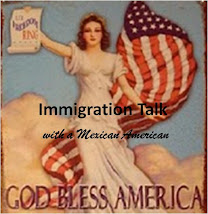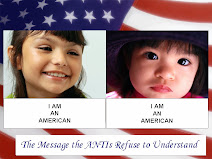 According to World renowned University of Florida history professor Michael Gannon, it was the Spanish and not the Pilgrims who first celebrated Thanksgiving in the New World. The first Thanksgiving took place in 1565, 55 years before the Pilgrims landed, when the Spanish founder of St. Augustine, Pedro Menendez de Aviles, and 800 Spanish settlers shared a Mass of Thanksgiving and a Thanksgiving Dinner Celebration with the Native Americans.
According to World renowned University of Florida history professor Michael Gannon, it was the Spanish and not the Pilgrims who first celebrated Thanksgiving in the New World. The first Thanksgiving took place in 1565, 55 years before the Pilgrims landed, when the Spanish founder of St. Augustine, Pedro Menendez de Aviles, and 800 Spanish settlers shared a Mass of Thanksgiving and a Thanksgiving Dinner Celebration with the Native Americans.“It was the first community act of religion and Thanksgiving in the first permanent European settlement in the land,” Gannon wrote in his 1965 book, “The Cross in the Sand.” The Pilgrims didn’t have their first Thanksgiving meal until 1621, 56 years later.
Menendez and his followers dined on cocido - a stew made from salted pork and garbanzo beans and laced with garlic seasoning - hard sea biscuits and red wine, said Gannon.
The Seloy Indians contributed food. The menu included wild turkey, venison, gopher tortoise, mullet, corn, beans and squash, Gannon said.
The first Thanksgiving is recounted by Gannon in “We Gather Together,” an article published in St. Augustine Catholic, the publication of the Catholic Diocese of St. Augustine.
The 1565 celebration wasn’t even the first Thanksgiving, Gannon said. Numerous Thanksgivings for a safe voyage and landing had been made in Florida by such explorers as Juan Ponce de Leon in 1513 and 1521; Panfilo de Narvaez in 1528; Hernando de Soto in 1529; Father Luis Cancer de Barbastro in 1549; and Tristan de Luna in 1559.
The French, who came to the St. Johns River near Jacksonville in 1562 and Rene de Laudonniere in 1564, also offered prayers of Thanksgiving - well before the Pilgrims, Gannon said. And in Texas, some claim that Spanish explorer Don Juan de Onate celebrated the first Thanksgiving in America in 1598.
“By the time the Pilgrims came to Plymouth, St. Augustine was up for urban renewal,” Gannon said.
So, if the Spanish were first, why do Pilgrims and Plymouth get all the credit?
“It is the victors who write the histories,” Gannon said. “England won out over Spain for the mastery of the North American continent, so the early English ceremonies achieved wide currency in history books and eclipsed our knowledge of the earlier Spanish celebrations on Thanksgiving.”








1 comment:
Great piece of info, I learned about this while researching my two new documentaries on Bernardo Galvez and the upcoming Florida 500th anniversary, 1513.
I'm in expectation of these two films bringing about a more reasonable relationship between Americans, and immigrants of Hispanic origins. My own family is of mixed ehnic heritage, and I'm a 6th generation Californio.
Post a Comment